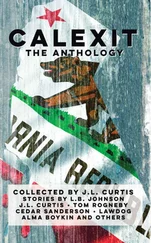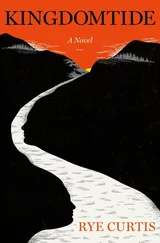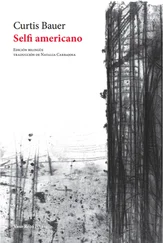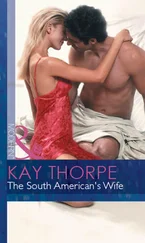Curtis Sittenfeld - American Wife
Здесь есть возможность читать онлайн «Curtis Sittenfeld - American Wife» весь текст электронной книги совершенно бесплатно (целиком полную версию без сокращений). В некоторых случаях можно слушать аудио, скачать через торрент в формате fb2 и присутствует краткое содержание. Жанр: Старинная литература, на английском языке. Описание произведения, (предисловие) а так же отзывы посетителей доступны на портале библиотеки ЛибКат.
- Название:American Wife
- Автор:
- Жанр:
- Год:неизвестен
- ISBN:нет данных
- Рейтинг книги:4 / 5. Голосов: 1
-
Избранное:Добавить в избранное
- Отзывы:
-
Ваша оценка:
- 80
- 1
- 2
- 3
- 4
- 5
American Wife: краткое содержание, описание и аннотация
Предлагаем к чтению аннотацию, описание, краткое содержание или предисловие (зависит от того, что написал сам автор книги «American Wife»). Если вы не нашли необходимую информацию о книге — напишите в комментариях, мы постараемся отыскать её.
American Wife — читать онлайн бесплатно полную книгу (весь текст) целиком
Ниже представлен текст книги, разбитый по страницам. Система сохранения места последней прочитанной страницы, позволяет с удобством читать онлайн бесплатно книгу «American Wife», без необходимости каждый раз заново искать на чём Вы остановились. Поставьте закладку, и сможете в любой момент перейти на страницу, на которой закончили чтение.
Интервал:
Закладка:
Ella was in the middle of reading
The Odyssey
for English, and I was rereading it myself—I took it with me as we campaigned, and I’d made a copy of her syllabus so that I could read the same pages each night that she did and we could discuss them on the phone if I wasn’t there (I had always loved
The Odyssey
). It turned out that when Howard had read it in ninth grade, he’d been required to memorize the first five lines in Greek and still remembered them:
Andra moy ennepay moosa / polutropon hos mala polla . . .
Then they announced that Petal was thirteen weeks pregnant—they’d been trying for years—and we were, they said, the only ones they’d told besides their families; they didn’t know yet if it was a boy or girl, so we debated names for both. Ella suggested Ella, Charlie suggested Charles, and when I didn’t suggest Alice, Howard said, “Why so bashful, Al? Can’t you keep up with these egomaniacs?” After dinner, we went into the den to play hearts, and Ella shot the moon; the night had taken on the festive air of a slumber party. Charlie was the first to turn in—ever since he’d started jogging in the morning, he went to bed by ten if he could—and when he was asleep, Petal and Ella and I went to the attic so I could find my old maternity clothes to give Petal. Most were hopelessly outdated.
The next morning, Howard went running with Charlie, and then Howard and Petal took off for Madison around the same time we left for church. Not for the first time, there turned out to be a local news camera waiting for us after the service at Heavenly Rose—this was in October—and Charlie stopped and spoke to the reporter for a few minutes while Ella and I waited in the car. That evening, Charlie was giving a speech in Green Bay, and I was staying in Milwaukee but meeting up with him Monday in Sheboygan, where six hundred area Republicans had paid a hundred dollars each to attend a luncheon with us. It was following the lunch, over twenty-four hours after it had happened, that Charlie told me: During their Sunday-morning run, Howard had said it would be a huge favor if he could set up a meeting between Charlie and his brother, Dave, who was the CEO of a large engineering firm hoping to win a contract with the state. Between the two of them, Howard said, Dave’s firm was vastly more qualified than any of the ones currently doing business with Wisconsin’s Department of Transportation. “You think that’s why they came to see us?” Charlie asked.
“I’m sure it’s not,” I said, though I wasn’t sure at all. Charlie and I were sitting in the first row of the conversion van, headed to the town of Little Chute, where Charlie was to give a speech to a bunch of dairy farmers, and I told myself that no one else in the van was listening to us. At that moment, our driver, Kenny, was in the front seat; a speech-writer named Sean O’Fallon was in the back row, wearing headphones and typing on his laptop; and Hank and Debbie Bell, a strategist, were in the second row, having a noisy and impassioned debate about whether the Garth Brooks song “Friends in Low Places,” which had just come on the radio, would be a good one to play before Charlie’s rallies. With the song’s reference to places “where the whiskey drowns and the beer chases my blues away,” it seemed clear to me that using it would be a disastrous idea, which was the argument Hank was making—he said it was practically baiting the media to uncover Charlie’s 1988 DUI, then still a secret—while Debbie was insisting that it was such a beloved song and so perfectly captured Charlie’s unpretentious personality, as well as the Wisconsin way of life, that the alcohol references didn’t matter; plenty of voters liked Charlie better because of his struggles.
Sitting next to me, ignoring the Garth Brooks argument, Charlie seemed melancholy rather than irritated when he said, “I guess this is how it works now, huh? We ask everyone we know for money, and everyone we know asks us for favors.” He chuckled, though not happily. “I’m a high-class hooker.”
“If that’s how you see yourself, I don’t know why you’re running,” I said. “A governor can be a great force for good, and anyway,
high-class hooker
is an oxymoron.”
“Now, hold on just a second.” Charlie grinned, this time for real. “Who’re you calling an oxymoron?”
“Seriously,” I said, “if you get elected, and it looks like you will”—this was not simply optimism on my part; his polling numbers were in the high fifties—“you’ll have the opportunity to improve the lives of lots of people. Isn’t that why you’re running?”
All these years later, I see the question of why Charlie ran for governor, or for president, as moot—our lives have become what they’ve become—but at the time, it mattered to me, it felt like an important puzzle that could be solved if I examined it thoroughly. I suppose I believed that if I understood Charlie’s impetus, I might agree that running for election was a good idea. “Because he feels called to lead,” Hank would tell reporters. Charlie himself, refusing to be serious, would say to me, “For the same reason a dog licks his balls—because I can.” Because he wanted to prove that he was as smart and ambitious as his brothers, journalists speculated, or because he wanted to avenge his father’s own humiliating presidential run in 1968, and while neither of these possibilities reflected particularly well on Charlie, they were more flattering than my own theory, which I shared with no one: because of his fear of the dark. Because if he were governor, and then president, he’d be guarded by state troopers and later by agents, he’d never be far from people specifically assigned to watch out for him; he might be assassinated, but he wouldn’t have to walk down a shadowy hallway by himself. (Indeed it seems clear that I fear Charlie’s assassination more than he does. Before he officially entered the presidential race the first time, I felt compelled to tell him about my peculiar, guilt-ridden relief when Kennedy was shot. Wouldn’t it be a perfectly symmetrical kind of punishment for having had such thoughts, I said, if my own husband became president and was killed similarly? To which Charlie replied, without a second’s hesitation, “You know that’s bullshit, right? That’s hocus-pocus teenage-girl thinking.”)
The reality of why Charlie ran, I imagine, was a combination of factors, including ego: He did feel some sense of public service, as he defined it; he did feel some sense of “why not?”; he did want to prove himself to his family and to prove his family to the world; he did want the perks. Such motives, inglorious as they are, do not offend me; they never persuaded me that Charlie’s entry into politics was wise, but I wonder if anyone else’s motives are nobler.
For his first presidential campaign, in 2000, Charlie ran as a “tolerant traditionalist,” a bit of alliteration that was Debbie Bell’s brain-child. Ironically, Charlie’s avowals of sympathy for the marginalized and the underclasses, and his credibility with more left-leaning voters, were bolstered not only by his centrist record as a governor but also, predating his public life by over a decade, by his consistent history of donating to organizations such as food pantries, after-school centers, shelters for women and children affected by domestic violence, and AIDS clinics. These were, of course, the modest donations I had made surreptitiously; when our financial records were first vetted and this bit of duplicity emerged, Charlie and Hank were both thrilled. “God bless your sneaky liberal ways!” Charlie exclaimed.
Another irony when it came to Charlie’s tolerant traditionalism was that the tolerance did not seem to extend to sexual orientation, yet I had never doubted that Debbie Bell was a lesbian. I didn’t know whether she had romantic involvements—she never referred to any and hadn’t been married—but she had a certain comradely air with men and a more flirtatious way with women. She was tall, with short blond hair, and even when she wasn’t wearing a pantsuit, she carried herself as if she were; in everything about her, her voice and posture and opinions, there was a briskly athletic confidence that unfortunately you rarely see in heterosexual women. It was on the infrequent occasions when she’d remark on a man’s handsomeness, or lament her unmarried status, that she seemed most obviously gay to me—the comments came off as forced and unpersuasive. I discussed my view with Jadey and later with Jessica, both of whom agreed, but I never mentioned it to Charlie because I thought he’d be distracted by it, he might start acting strange around Debbie, teasing her outright or making jokes behind her back. I was surprised Charlie didn’t pick up anyway on her mysterious sexuality, but I think he was so gratified by Debbie’s unswerving devotion to him that he may not have wanted to analyze it for fear of finding something psychologically iffy. And in fact, I suspect Debbie has spent her interior reservoirs of love, the ones most people save for a partner or children, on Charlie. (Many times, I’ve longed to pull her aside and whisper,
Читать дальшеИнтервал:
Закладка:
Похожие книги на «American Wife»
Представляем Вашему вниманию похожие книги на «American Wife» списком для выбора. Мы отобрали схожую по названию и смыслу литературу в надежде предоставить читателям больше вариантов отыскать новые, интересные, ещё непрочитанные произведения.
Обсуждение, отзывы о книге «American Wife» и просто собственные мнения читателей. Оставьте ваши комментарии, напишите, что Вы думаете о произведении, его смысле или главных героях. Укажите что конкретно понравилось, а что нет, и почему Вы так считаете.












